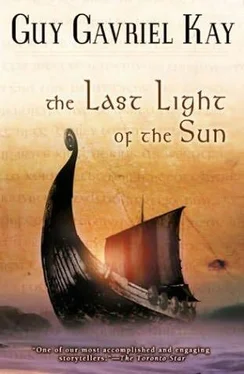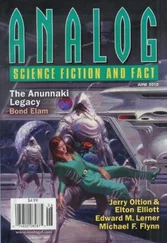Guy Kay - The Last Light of the Sun
Здесь есть возможность читать онлайн «Guy Kay - The Last Light of the Sun» — ознакомительный отрывок электронной книги совершенно бесплатно, а после прочтения отрывка купить полную версию. В некоторых случаях можно слушать аудио, скачать через торрент в формате fb2 и присутствует краткое содержание. Год выпуска: 2003, ISBN: 2003, Издательство: ROC, Жанр: Фэнтези, на английском языке. Описание произведения, (предисловие) а так же отзывы посетителей доступны на портале библиотеки ЛибКат.
- Название:The Last Light of the Sun
- Автор:
- Издательство:ROC
- Жанр:
- Год:2003
- ISBN:0-451-45965-2
- Рейтинг книги:3 / 5. Голосов: 1
-
Избранное:Добавить в избранное
- Отзывы:
-
Ваша оценка:
- 60
- 1
- 2
- 3
- 4
- 5
The Last Light of the Sun: краткое содержание, описание и аннотация
Предлагаем к чтению аннотацию, описание, краткое содержание или предисловие (зависит от того, что написал сам автор книги «The Last Light of the Sun»). Если вы не нашли необходимую информацию о книге — напишите в комментариях, мы постараемся отыскать её.
The Last Light of the Sun — читать онлайн ознакомительный отрывок
Ниже представлен текст книги, разбитый по страницам. Система сохранения места последней прочитанной страницы, позволяет с удобством читать онлайн бесплатно книгу «The Last Light of the Sun», без необходимости каждый раз заново искать на чём Вы остановились. Поставьте закладку, и сможете в любой момент перейти на страницу, на которой закончили чтение.
Интервал:
Закладка:
His eyes were dry, his hand steady, holding the small sword. He touched the point and still-sharp edges. Not a warrior's blade this one, a slender, ceremonial sword. This was a ceremony, as much as anything else.
He drew a breath. There was no reason to wait, or linger. He'd been brought here for this. He stepped forward.
"Let there be light for you," he said. And thrust the Volgan's blade into the kneeling, shimmering creature, below what would have been its collarbone, long ago.
He was ready this time for the sound that came, and so did not flinch or startle when he heard that cry of release, or the deeper sound that came from the others gathered here. No wind, the water utterly still. Stars would be reflected in it.
There was nothing kneeling before him now, where the blade (too smoothly, almost no resistance) had gone. Alun understood.
It was a soul, not a mortal body. It had died long ago. He was stabbing hearth smoke and memory.
He told himself that, again and again, as he besought light (besought) for each of them, one by one, as they came and knelt and he did what they had drawn him here to do for them. He became aware of how grateful he was that Brynn had stayed, after all, that he wasn't here alone to do this in the dark, wrapped in sorrow, hearing that aching joy in each of them at their release, the sound they made.
His hand was steady, each time, over and again. He owed them that, having been chosen for this. Exchanges in spirit woods, he was thinking. A hammer laid down in one forest that a sword might be lifted from under a boulder in another. Thorkell's life for his and Athelbert's, and so many others on that slope today (mortals, all).
He had no idea how much time had passed or if, indeed, it had.
He looked down upon the last of these kneeling souls taken once, and discarded, by the faerie queen. He offered his prayer for it and plunged the sword and heard the cry, and saw this last one flicker and drift from sight as the others had done. Nothing green left glimmering in the glade. And so this, Alun thought, was the last exchange, final balancing, an ending.
He, too, was young. To be forgiven this error, as the others were.
He heard music. Looked up. Behind him, Brynn began, quietly, to pray.
Light upon the water, pale, as if moonlight were falling. And then the light (which was not moonlight) took shape, attained form, and Alun saw, for a second time, faeries coming across the surface of the pool, to the sound of flutes and bells and instruments he did not know. He saw the queen (again), borne in her open litter, very tall, slim, clothed in what would be silk or something finer, silver-hued (like his sword). Faeries, passing by.
Or not, in fact, passing. Not this time. The music stopped. He heard Brynn behind him, ceaselessly speaking the invocation of light, the first, the simplest prayer. The dog was silent, still. Alun looked at the queen, and then made himself look beside her.
Dai was there, as he had been before (so little time would have passed for them, he thought). He was riding a white mare with ribbons in her mane, and the queen was reaching out and holding him by the hand.
Silence upon the water. Brynn's murmuring the only sound in the glade. Alun looked at that shining company, and at his brother (his brother's taken soul). Without having intended to, he knelt then on the grass. His turn to kneel. They were so far inside the half-world; only with mercy would they ever come out, and faeries were never known for mercy, in the tales.
They did make bargains, though, with mortals they favoured, and there can be a final balancing, though we might not expect it or know when it has come.
Kneeling, looking upon that tall, pale, exquisite queen in her silvered light upon water, he saw her gesture, a movement of one hand, and he saw who came forward, obedient, dutiful, from among those in her train, to her side. No sound. Brynn, he realized, had fallen silent.
Grave, unsmiling, achingly beautiful, the faerie queen gestured again, twice, looking straight at Alun, and so he understood—finally-that there could be indulgence, mercy, a blessing, even, entangled with all sorrows (the cup from which we drink). She reached out one arm and laid it like a barrier before the small, slim figure of the one who had come forward. The one he knew, had spoken to, had lain with in a forest, on the grass.
Will you come back into the wood?
Will you sorrow if I do not? he had asked.
Her hair was changing hues, as he watched, golden to dark violet, to silver, like the queen's. He knew these changes, knew this about her. From behind the barrier of that arm, that banning, she looked at him, and then she turned her head away and gazed at the figure on the other side of the queen, and Alun followed her glance, and began, now, to weep.
Final balancing. The queen of the faeries released his brother's hand. And with those fingers, a gesture smooth as water falling, she motioned for Dai to go forward, if he wished.
If he wished. He was still wrapped (like a raiment) in his mortal shape, not green and twisted away from it as the others had been. He was too new, still her favoured one, riding the white mare at her side, holding her hand amid their music, upon water, in the night woods, within the faerie mounds.
If he wished. How did one leave this? Go from that shining? Alun wanted (so much) to call to him, but tears were pouring down his face and his throat was blocked with grief, so he could only watch as his brother (his brother's soul) turned to look at the queen in her litter beside him. He was too far away for Alun to see what expression was on his face: sorrow, anger, fear, yearning, puzzlement? Release?
It is, as has long been said, the nature of the Cyngael that in the midst of brightest, shining joy, they carry an awareness of sorrows to come, an ending that waits, the curving of the arc. It is their way, the source of music in their voices, and-perhaps—what allows them to leave the shining behind, in due time, when others cannot do so. Gifts are treasured, known not to be forever.
Dai twitched the reins of his mare and moved forward, alone, across the water. Alun heard Brynn again, praying behind him. He looked, for one brief moment (that could be made to last a lifetime if held clearly enough in memory) upon the faerie that had come to him, his own gift, a shining left behind, and saw her raise a hand to him from behind the arm of the queen. Final balancing.
Dai reached the water's edge, dismounted. Walked across the grass. Not hovering as the others had, not yet, still clothed in the form his brother had known. Alun made himself stand still. He held the Volgan's sword.
Dai stopped in front of him. He did not smile, or speak (no words spoken, across that divide). Nor did he kneel, Owyn of Cadyr's older, slain son. Not before a younger brother. One could even smile at that perhaps, later. Dai spread his feet a little, as if to steady himself. Alun was remembering the morning they had ridden north from home, coming here. Other memories followed, in waves. How could they not, here? He looked into his brother's eyes and saw that they had changed (were still changing). It seemed to him there were stars to be seen there, a strangeness so great.
"Let there be light for you," he murmured, scarcely able to speak.
"Let it be done with love," said Brynn behind him, soft as a benison, words that seemed to be from some ancient liturgy Alun didn't know.
"How not?" he said. To Brynn, to Dai, to the bright queen and all her faeries (and the one he was losing now), to the dark night and the stars. He drew back the sword a last time and drove it into his brother's chest, to accept the queen's gift of his soul, the balancing, and set it free to find its harbour, after all.
Читать дальшеИнтервал:
Закладка:
Похожие книги на «The Last Light of the Sun»
Представляем Вашему вниманию похожие книги на «The Last Light of the Sun» списком для выбора. Мы отобрали схожую по названию и смыслу литературу в надежде предоставить читателям больше вариантов отыскать новые, интересные, ещё непрочитанные произведения.
Обсуждение, отзывы о книге «The Last Light of the Sun» и просто собственные мнения читателей. Оставьте ваши комментарии, напишите, что Вы думаете о произведении, его смысле или главных героях. Укажите что конкретно понравилось, а что нет, и почему Вы так считаете.












